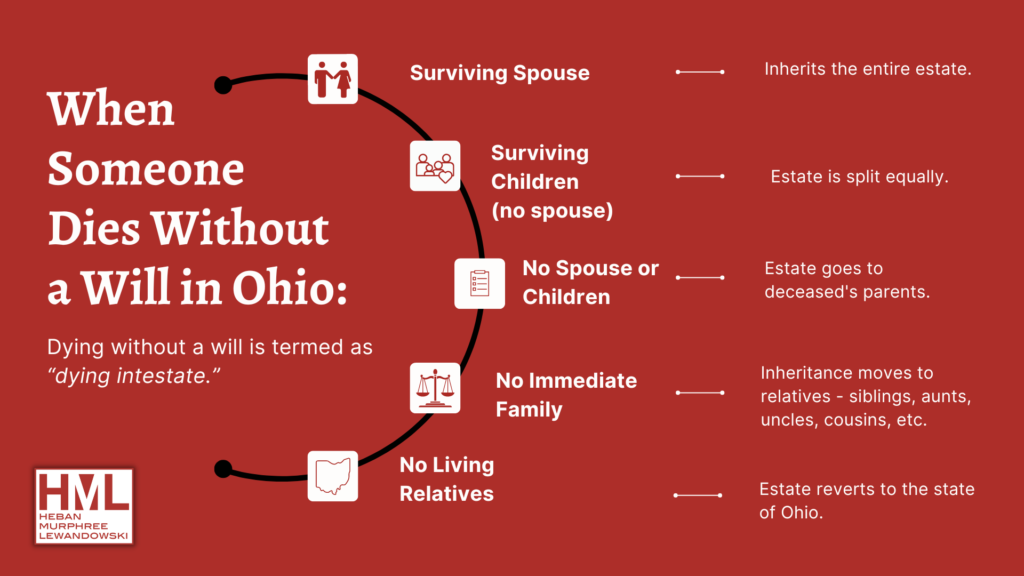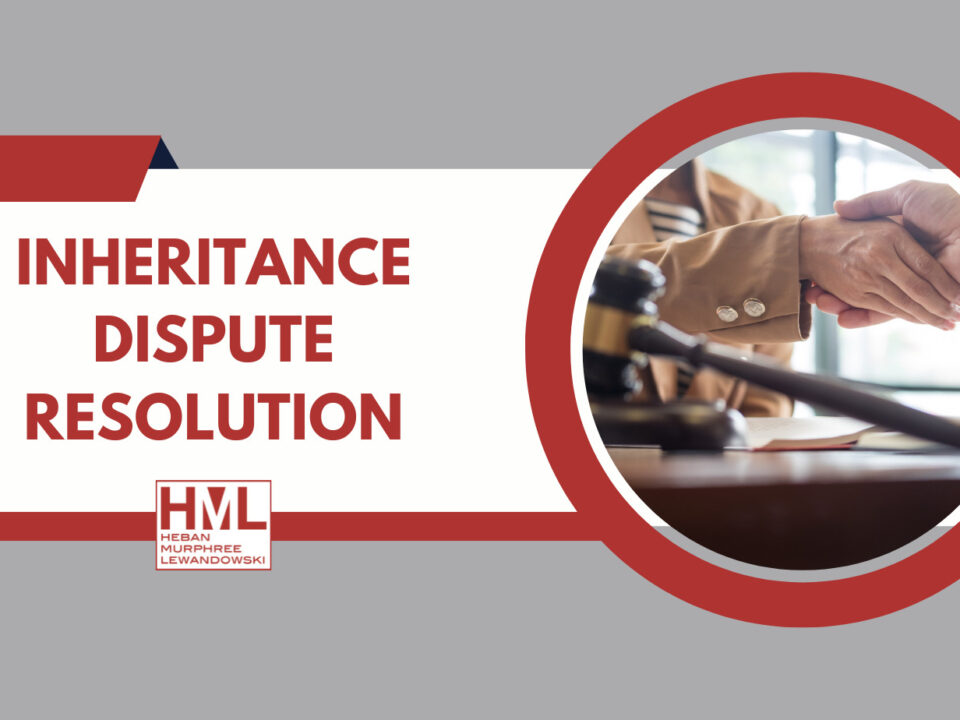- EXPERIENCED LAW FIRM IN TOLEDO, OH
- (419) 662-3100
Who Inherits Property If There Is No Will?

Power of Attorney in Ohio
October 19, 2021
A Guide To Real Estate Disputes
November 1, 2021Inheritance Laws in Ohio
There can be many reasons why someone might not leave a will. Some think their estate is too small to warrant it. Others believe that the line of inheritance is clear and that a will isn’t necessary. Some people either don’t like planning for their passing or have passed away suddenly and didn’t have the opportunity to create a proper estate plan.
Whatever the reason, it can make the difficult time of a loved one’s passing even more stressful. Without a will, there is no guidance to follow when unexpected complications arise in managing the estate. Heirs can sometimes get into conflict over who is entitled to inherit what.
Who Inherits When There Is No Will
When someone passes away without a will, this is called “dying intestate.” According to Ohio’s intestate laws, the deceased’s property is distributed like this:
- A surviving spouse will inherit the entirety of the deceased’s estate.
- If there are surviving children, but no spouse, the estate is divided equally among the children.
- Without a spouse or children, the deceased’s parents will inherit.
- Lacking all of the above, relatives such as siblings, aunts, uncles, nephews, cousins, and so forth would be next in line.
- If the court cannot find any living relatives, the estate goes to the state of Ohio.
In general, the above (minus willing an estate to the state) reflects how most people would plan to distribute their assets after they’ve passed, but having a will in place will ensure your intentions are carried out exactly how you want. This would be especially important for individuals who would go outside the standard line of inheritance and, instead, will their assets to a life partner or close friend. This would also apply to those who choose a charitable organization to receive their assets instead of a family member.
Without a will, the court would likely not recognize those wishes.
How Does Intestate Succession Work?
If you don’t have a will already set up, you should understand how a probate court will handle the distribution of your assets.
A relative or heir may volunteer to serve as the administrator of your estate, or the court may appoint one. The administrator files with the court to open probate, and the intestate succession process follows below.
1) Evaluating the Value Of the Estate
When the estate is worth less than $35,000 or less than $100,000 for a surviving spouse, the estate administrator can file for a release of administration. This simplifies and quickens the whole probate process. By contrast, if the estate requires full administration, the probate will undergo a more extensive procedure.
2) Determining What Assets Do Not Need To Go Through Probate
Any bank or retirement accounts or insurance policies listing co-owners or beneficiaries, properties held in trust, and assets with a transfer-on-death clause can go straight to the named beneficiary and not have to go through probate.
3) Conducting An Asset Inventory and Appraisal
A complete list of all assets and properties the estate owns must be made. After all the items have been appraised, the list is turned over to the court.
4) Identifying the Estate’s Debts
Some bills need to continue to be covered by the estate administrator if they are eligible for inheritance. These usually included mortgages and car loans. Credit card debt, utilities, and other bills do not need to be paid, but debts such as medical bills might. The estate’s administrator should determine which debts must be handled and which can be ignored.
5) Submission of Final Accounting
Once debts are addressed, and assets are distributed, a final accounting will have to be filed with the probate court to close the estate fully.
Things To Remember About Wills
It would be best always to have expert guidance when drawing up a will. Some assets, such as insurance policy benefits or joint property, will go to your named beneficiary or surviving spouse and do not need to be included. Wills also should not be used to avoid estate taxes. To protect your assets, you should speak to a trusted estate planning attorney about setting up a trust.
Also, remember that a will can be challenged if evidence suggests mental incapacity, fraud, or coercion. Having an attorney help write up your will can lessen the grounds for someone to challenge your final wishes.
Managing an Estate
Being an estate administrator is a big job. Whether or not the estate requires full administration, it’s always best to have a qualified probate attorney to help. If something goes wrong, you want the best legal representation possible.
No one has more knowledge of probate litigation than Heban, Murphree, and Lewandowski. We keep you involved in the process from start to finish, so there are no questions and no loose ends. Don’t go through probate litigation alone—contact us today.








